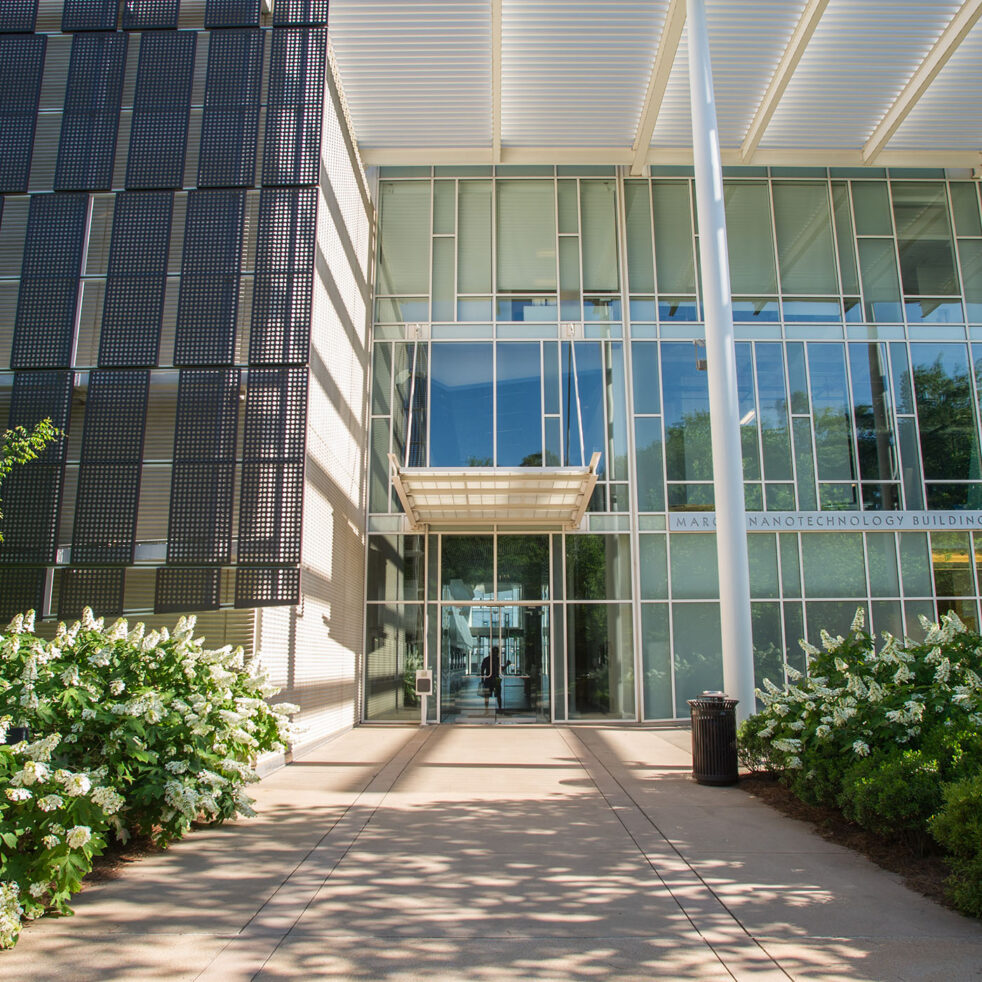Bernard Marcus, co-founder of The Home Depot, passed away on Nov. 4 at the age of 95.
In the vast landscape of American entrepreneurship, few names have left an impact as profound as Marcus’. As the co-founder of The Home Depot and a renowned philanthropist, his legacy goes far beyond home improvement.
“The Georgia Tech community mourns the passing of Bernie Marcus,” President Ángel Cabrera told Tech’s News Center. “His passion for health science and technology, coupled with his confidence in our research vision, has helped solidify Georgia Tech’s reputation in fields such as stem cell bioengineering, nanotechnology, and cancer research, as well as student innovation and entrepreneurship. His philanthropic legacy will continue to bolster the Atlanta community for generations to come.”
Born in Newark, N.J., in 1929 to Russian Jewish immigrants, he was accepted into Harvard Medical School to become a doctor but could not afford the tuition. Instead, he graduated from Rutgers University and worked his way up to become the CEO of Handy Dan Improvement Centers, a Los Angeles-based chain of home improvement stores.
He was fired from his job in April 1978, along with Arthur Blank, but the setback inspired Blank and Marcus to establish The Home Depot, whose first two stores opened in Atlanta in June 1979.
His vision was to create a one-stop shop for affordable, high-quality home improvement products. This “big box” format, with its comprehensive range of products, attracted homeowners and contractors alike.
As of 2021, The Home Depot employs approximately 500,000 associates and operates over 2,300 stores in North America. Its total revenue was $132.1 billion in 2020.
In his obituary, The Home Depot called Bernie an inspiration. “More than anything, he deeply believed in the company’s core values, particularly that of giving back. He never lost sight of his humble roots, using his success not for fame or fortune but to generously help others. In business and in charity, Bernie was unparalleled in generosity and goodwill,” the obituary said.
Marcus was a passionate supporter of education, research and innovation. His support of the Institute resulted in the Marcus Nanotechnology Building, a state-of-the-art facility that features the largest cleanroom laboratory dedicated to the fabrication and assembly of biomedical and semiconductor devices in the Southeast. The Marcus Center for Therapeutic Cell Characterization and Manufacturing has also been pivotal in advancing the manufacturing process of cellular medicines, making them more accessible and affordable.
He was also awarded an Honorary Doctor of Philosophy degree in 2015, acknowledging his contribution to the Institute.
Marcus’s contributions to business are remarkable, but his legacy in philanthropy is even more profound.
“My mother taught me to be generous. She believed that the more you give, the more you get,” he used to say.
He had an enormous impact on Atlanta’s healthcare. He started The Marcus Institute with his wife, Billi Marcus, which was renamed the Marcus Autism Center. This not-for-profit subsidiary of Children’s Healthcare of Atlanta treats more than 5,500 children with autism and related disorders a year.
He was also involved in creating Project Share at the Shepherd Center, renowned for treating brain and spinal injuries. To ensure that military members and veterans get diagnosed and cared for without financial constraint, The Marcus Foundation underwrote the housing, transportation and care costs of any military personnel with brain or spinal injuries who were sent to Shepherd.
In 1999, Marcus started The Homer Fund to care for Home Depot associates who suffer unexpected hardships. Since its founding, The Homer Fund has helped more than 194,000 associates.
With a net worth of $10.3 billion, Marcus also joined The Giving Pledge in 2010, a commitment by wealthy individuals to give away most of their money during their lifetime. By 2019, he had given away $2 billion to various philanthropic causes, which rose to $9.8 billion in 2024. He was recognized as one of the top 10 individuals who gave or pledged the most to charity in the United States in 2023.
“To make a quarterly profit is one thing, but changing just one life is so much better,” Marcus wrote in a letter to Warren Buffett, as mentioned in his obituary from The Home Depot.
One of Marcus’s contributions to the city of Atlanta is the Georgia Aquarium. Opened in 2005, it remains one of the largest aquariums in the world and is one of Atlanta’s most visited attractions. Marcus envisioned the aquarium as an educational and recreational facility that would draw tourists to Atlanta and provide a source of pride for the community. Today, it is a hub of marine research, conservation and educational and recreational activities.
His contributions to the city have enriched the state in lasting ways. His decision to establish The Home Depot’s headquarters in Atlanta helped cement the city’s reputation as a significant business hub, creating thousands of jobs and attracting other corporations to the region.
